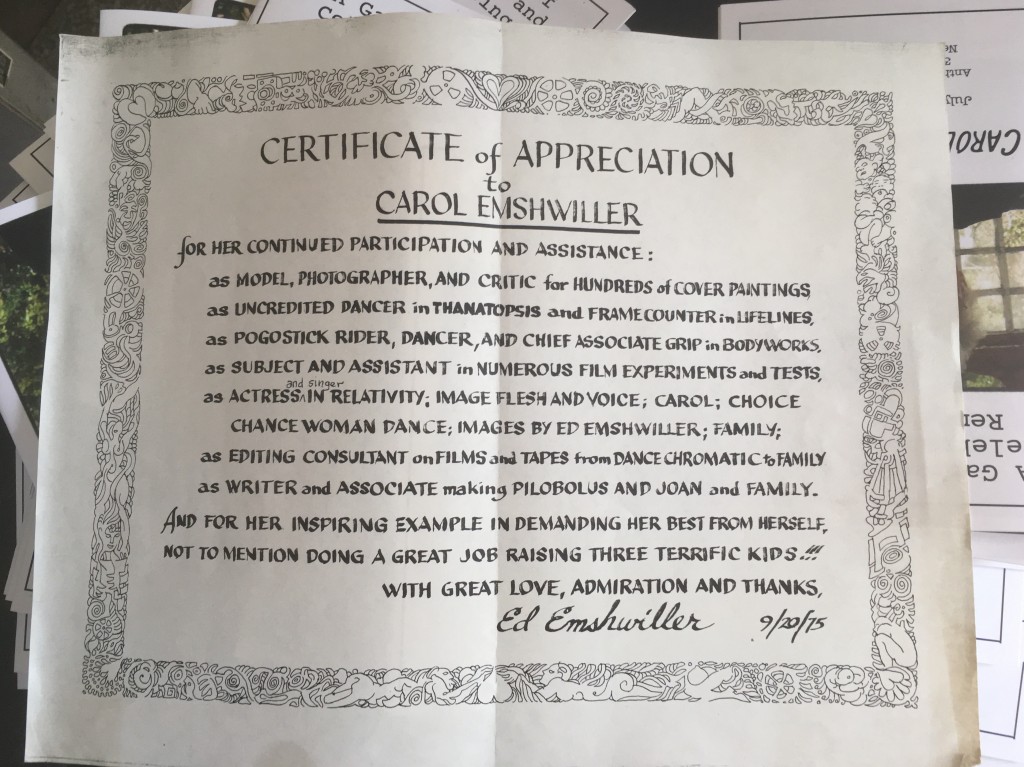LAST SATURDAY I went to the memorial for Carol Emshwiller at the Anthology Film Archives in NYC. It was billed as a “gathering of celebration and remembering” and that it was. Carol died the morning of Feb. 2 at the age of 97. I first met her when she was 81, but it seems like I knew her all my life — as if she were family. I did not plan to speak at the the gathering, but listening to other speakers I got up and said a few words. After a long nonstop drive to get there, and having received bad news the day before of a loved family member possible cancer diagnosis, I felt tongue-tied. What I was trying to communicate was how comfortable I felt around Carol. How warm, open and welcoming she was every time I visited her. She wore her feelings on her sleeve, and I liked that about her.
I felt as if she was family because I have been reading her stories since the age of 14. I vividly remember the first story of hers that I read. That was “Sex and/or Mr. Morrison” in a paperback edition of Harlan Ellison’s Dangerous Visions anthology. At the time I thought that it was one of the best things in the book. I still do.
Since then I have edited 2 collections of her stories. When I first approached her about doing the Collected Stories she wanted to leave out her very early 1950s fiction, which she believed was clumsily written and not very good. I remember telling her how rare it is for a writer to begin writing at the top of their game. “Not everyone is James Joyce.”
In reading all her stories I was fascinated by her progress and seeing the development of themes and ideas. “Sex and/or Mr. Morrison” was the story she had near to hand when Ellison came calling. Carol was writing her own dangerous visions without any prodding. She was not interested in fitting into the “normal” world around her as a writer, and this mindset always seemed to lead her back to science fiction. This was the one place where she could write about anything she wanted to.
What she wrote about was love and insecurity, and dreamers. There is one story where a character crosses the street when someone is on the same sidewalk, so as not to have her daydream interrupted. Carol told me this was something that she did in real life.
Many times Carol felt minimized when she helped her husband in his career — as model, assistant, actor, writer on his films, and general muse. In 1975, after a little contretemps, Ed created a certificate of appreciation for her. This certificate was read at the memorial so that Ed’s voice, in spirit, was part of the celebration. When I started interviewing her for my book Emshwiller: Infinity x 2 all those years ago, she seemed surprised that I was just as interested in her life as her husband’s. I told her that I couldn’t tell his story without telling hers. She seemed pleased by this. To my thinking, Carol’s career was the equal of her husband’s. Her stories were generous and candid gifts to readers.

Write a Comment